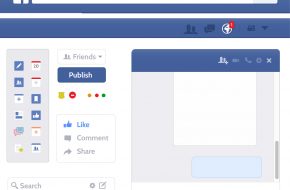
By: Lisa Ottenheimer
As technology and social media trend towards video streaming, Facebook Live is increasingly in the spotlight. The Live video feature, released in April 2016, allows users to easily select a “live” option to broadcast their current activity to friends and the general public. Not only can users share and virtually experience day-to-day events such as birthdays, weddings, and vacations, but they can also see concerts and political events they may never have had the chance to experience previously. For example, media organizations saw strong engagement with viewers when leveraging this feature to stream the first U.S. presidential debate between Donald Trump and Hilary Clinton. Celebrities have also seen benefits by utilizing Facebook Live to reach larger audiences and increase their follower counts.
From a data perspective, products such as Facebook Live contribute to the upward trend of data transparency. These offerings provide users with an additional channel to share experiences as well as their personal thoughts and opinions with others who view their video content. This type of live data is especially valuable for companies that utilize the information to create personalized marketing campaigns. Facebook is already reporting that business users see significant levels of engagement with their broadcasts, citing specific examples of Dunkin’ Donuts, The Young Turks news network, and a food-focused channel called Tastemade.
On the other hand, the power to broadcast in real-time can be easily abused. Recent videos of raw, unedited, violent, and graphic content have brought the negative implications of Facebook Live to light. Unless tight monitoring and reporting controls are in place, viewers can easily stumble upon a video they are not prepared to see. Recently a Facebook Live video of teenagers assaulting a man with special needs dominated news headlines for its violent content and explicit language. While the video will serve as strong evidence for prosecutors in the case, the ability for people to broadcast without limitations could promote violence in certain instances. And even if violence is not the only concern, social media advances such as Facebook Live can contribute to narcissism and neuroticism in our society, where “selfies” have been adopted as the new norm.
Facebook Live also presents a number of challenges for users and data analysts. Using the service reveals an enormous amount of data about a person’s life and daily routine and creates potential vulnerabilities for hackers to exploit. Big data analysis of Facebook Live data is also quite difficult. Speech analytics and audio mining technology is still an emerging industry, and the processing power needed to analyze the massive quantity of Facebook Live data will present a continuing challenge.
From the analyst’s perspective, Facebook Live and other streaming video technologies are ultimately positive enhancements to the social media landscape. As with any emerging technology, some will misuse the platform for their own purposes. But live streaming video appears to be here to stay, and it is driving a number of other advancements in the video analysis field. As an analysis firm, Praescient welcomes this technology, and it’s potential to be analyzed legally and ethically to uncover new insights about user behavior, speech, psychology, and connections.